7 start with O start with O
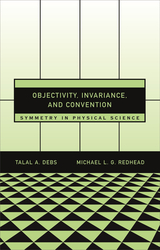
Most observers agree that modern physical theory attempts to provide objective representations of reality. However, the claim that these representations are based on conventional choices is viewed by many as a denial of their objectivity. As a result, objectivity and conventionality in representation are often framed as polar opposites.
Offering a new appraisal of symmetry in modern physics, employing detailed case studies from relativity theory and quantum mechanics, Objectivity, Invariance, and Convention contends that the physical sciences, though dependent on convention, may produce objective representations of reality. Talal Debs and Michael Redhead show that both realists and constructivists have recognized important elements of an understanding of science that may not be contradictory.
The position—“perspectival invariantism”—introduced in this book highlights the shortcomings of existing approaches to symmetry in physics, and, for the constructivist, demonstrates that a dependence on conventions in representation reaches into the domain of the most technical sciences. For the realist, it stands as evidence against the claim that conventionality must undermine objectivity. We can be committed to the existence of a single real ontology while maintaining a cultural view of science.

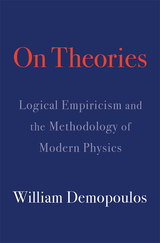
A renowned philosopher’s final work, illuminating how the logical empiricist tradition has failed to appreciate the role of actual experiments in forming its philosophy of science.
The logical empiricist treatment of physics dominated twentieth-century philosophy of science. But the logical empiricist tradition, for all it accomplished, does not do justice to the way in which empirical evidence functions in modern physics.
In his final work, the late philosopher of science William Demopoulos contends that philosophers have failed to provide an adequate epistemology of science because they have failed to appreciate the tightly woven character of theory and evidence. As a consequence, theory comes apart from evidence. This trouble is nowhere more evident than in theorizing about particle and quantum physics. Arguing that we must consider actual experiments as they have unfolded across history, Demopoulos provides a new epistemology of theories and evidence, albeit one that stands on the shoulders of giants.
On Theories finds clarity in Isaac Newton’s suspicion of mere “hypotheses.” Newton’s methodology lies in the background of Jean Perrin’s experimental investigations of molecular reality and of the subatomic investigations of J. J. Thomson and Robert Millikan. Demopoulos extends this account to offer novel insights into the distinctive nature of quantum reality, where a logico-mathematical reconstruction of Bohrian complementarity meets John Stewart Bell’s empirical analysis of Einstein’s “local realism.” On Theories ultimately provides a new interpretation of quantum probabilities as themselves objectively representing empirical reality.

Ibn al-Haytham was perhaps the greatest mathematician and physicist of the medieval Arabic/Islamic world. The most famous book in which he applied his scientific method is his Optics, through which he dealt with both the mathematics of rays of light and the physical aspects of the eye in seven comprehensive books. His rethinking of the entire science of optics set the scene for the whole of the subsequent development of the subject, influencing figures such as William of Ockham, Kepler, Descartes, and Christaan Huygens. The immense work of editing, translating into English, and commenting on this work was undertaken by Abdelhamid I. Sabra. This English translation of Books IV–V was completed by Sabra just before his death in 2013 with an introduction and critical analysis. It has been extensively revised by Jan Hogendijk.
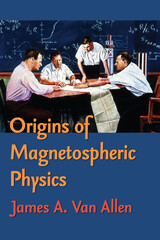
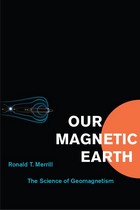
But as Ronald T. Merrill reveals in Our Magnetic Earth, geomagnetism really is an enduring, vibrant area of science, one that offers answers to some of the biggest questions about our planet’s past—and maybe even its future. In a clear and careful fashion, he lays out the physics of geomagnetism and magnetic fields, then goes on to explain how Earth’s magnetic field provides crucial evidence for our understanding of continental drift and plate tectonics; how and why animals, ranging from bacteria to mammals, sense and use the magnetic field; how changes in climate over eons can be studied through variations in the magnetic field in rocks; and much more. Throughout, Merrill peppers his scientific account with bizarre anecdotes and fascinating details, from levitating pizzas to Moon missions to blackmailing KGB agents—a reminder that real science can at times be stranger, and more amusing, than fiction.
A winning primer for anyone who has ever struggled with a compass or admired a ragged V of migrating geese, Our Magnetic Earth demonstrates that education and entertainment need not be polar opposites.
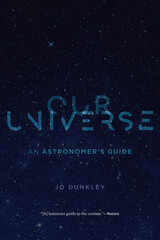
A BBC Sky at Night Best Astronomy and Space Book of the Year
“[A] luminous guide to the cosmos…Jo Dunkley swoops from Earth to the observable limits, then explores stellar life cycles, dark matter, cosmic evolution and the soup-to-nuts history of the Universe.”
—Nature
“A grand tour of space and time, from our nearest planetary neighbors to the edge of the observable Universe…If you feel like refreshing your background knowledge…this little gem certainly won’t disappoint.”
—Govert Schilling, BBC Sky at Night
Most of us have heard of black holes and supernovas, galaxies and the Big Bang. But few understand more than the bare facts about the universe we call home. What is really out there? How did it all begin? Where are we going?
Jo Dunkley begins in Earth’s neighborhood, explaining the nature of the Solar System, the stars in our night sky, and the Milky Way. She traces the evolution of the universe from the Big Bang fourteen billion years ago, past the birth of the Sun and our planets, to today and beyond. She then explains cutting-edge debates about such perplexing phenomena as the accelerating expansion of the universe and the possibility that our universe is only one of many. Our Universe conveys with authority and grace the thrill of scientific discovery and a contagious enthusiasm for the endless wonders of space-time.
READERS
Browse our collection.
PUBLISHERS
See BiblioVault's publisher services.
STUDENT SERVICES
Files for college accessibility offices.
UChicago Accessibility Resources
home | accessibility | search | about | contact us
BiblioVault ® 2001 - 2025
The University of Chicago Press









